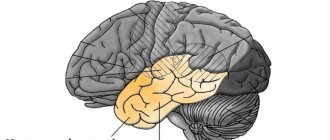There is an opinion that extroverts live best in this world. They are open, sociable, and keenly interested in everything around them, including new acquaintances. Things are much more complicated for introverts - they always want solitude, which is extremely difficult to achieve in city life. But there is a third group of people whose character has absorbed the characteristics of both, thanks to which they have become more adaptable. Who is an ambivert, what is the definition of this term, is it possible to learn to be one and how to build relationships with others, I will tell you below.
What does ambivert mean?
The prefix ambi- is used for concepts with opposite meanings. Suffice it to recall ambidexters - both left-handed and right-handed, the concept of ambivalence.
An ambivert is a balanced personality with a fine balance, combining the characteristics of introverts and extroverts. Ambiverts fit well into company and feel great alone. These are people who know how to adapt and develop quite harmoniously under any conditions, but do not depend on the situation.
At first glance, it may seem that ambiverts are more of a norm, from which a person can deviate towards introversion or extroversion. But people who cope well with loneliness, and at the same time know how to navigate in a large company of people, are not the golden mean, but one of the vertices of the triangle.
The fact is that ambiversion is formed due to great sensitivity to stress. An ambivert quickly gets tired of the noisy bustle, and constant loneliness causes him depression, oppression and depression.
Predominance of introvert qualities
Loneliness is a great need for this type. Such a person appears in public, but not too often.
If he appears in a large company, then everyone will note how easy he feels among people, how easy he is to communicate, interesting, witty, and attentive. But this does not mean that the internal sensations of such a person coincide with external behavior.
At the same time, this psychotype is an excellent reflector: he knows his strengths and weaknesses, he knows how to sensibly evaluate his actions and, based on this, chart a further trajectory of action.
He can emotionally experience failures: but he does not demonstrate this to outsiders, and does not suffer for a long time.
The need for new actions and a focus on mental comfort allow him to remain less susceptible to depression.
How to overcome shyness? Read about it here.
Introvert, ambivert or extrovert? Who you are? Take the test:
Difference from introverts and extroverts
Back in the last century, Carl Jung divided people exclusively into two types - introverts and extroverts. If we consider the physiology of the phenomenon, the difference is based on the degree of excitability of the cerebral cortex. These properties of neurons are unique to each person.
One of them is no worse than the other, it’s just that extroverts prefer to be in public all the time, they need additional incentives in the form of exciting situations and the emotions associated with them. They direct their energy outward, being interested in others and turning them into objects for their plans, but this type evokes the most sympathy.
Introverts prefer familiar situations and feel comfortable only when alone with themselves. They are easily excitable, so they physically need rest to reduce activity. They do not like to be central figures; they try to think longer before taking decisive action. Life teaches them secrecy, because they can only recover alone. Contrary to popular belief, they can communicate and be friends, but they need time and space for themselves.
Ambiverts can balance in the center of the scale between the first and second, and regulate their own behavior arbitrarily, depending on the situation. You can use your ambivert advantage to develop the strengths of both types through training.
An introvert of the classical type will not be able to pretend to be an extrovert for long, and vice versa, burnout is guaranteed.
Characteristics of the psychotype
On the one hand, this type of personality is a gift of fate; the ability to adapt to different situations allows you to be closer to success. But this property imposes enough restrictions to consider such people ideally suited for communication. Among them:
- An ambivert does not survive active communication at a high pace, maintaining a circle of acquaintances and complying with social requirements for long, then he needs a pause, which confuses acquaintances and colleagues;
- While saving face, the ambivert perceives most remarks extremely painfully, he cannot completely distance himself from catchy remarks, and is also unable to accept them;
Psychologist Ershov - helping women
Ambiverts should not be considered universal soldiers; they are familiar with the complexities of two personality types at once.
Personal qualities
The personal qualities of an ambivert are not a synthesis of the best between the extreme poles of a psychotype, but a completely special character.
Among their qualities there is one unique thing - the ability to withstand monotonous work for a long time, although not as long as introverts. Despite their enormous patience, they are relatively easy-going and know when to take risks.
At the same time, they, as extroverts, are able to make a career and develop in the profession, willingly communicating with clients and with the team.
Ambiverts are clearly noticeable in a group, in contrast to that part of the closed, unsociable people about whom they say: what is there, what is not.
A flexible mind and ability to adapt help ambiverts find elegant solutions where others fail. At the same time, in a difficult situation, they do not boil, do not explode, and do not fall into a stupor.
Behavior
It is impossible to determine how this or that person will behave if we know about him that he is an ambivert. After all, this is only one personality trait out of the top five. Behavior is not determined solely by it. In addition to the intro-extroversion scale, there are four more oppositions:
- in interactions with people, attachment to them and independence are contrasted, and people differ in reactions from competition and indifference to cooperation, trust and respect;
- A person's control over himself may vary. Either the person is relaxed and goes with the flow, or she is trying to keep everything under control;
- playfulness - practicality, in this pair psychologists study how much a person lives in reality and how inclined he is to have his head in the clouds;
- a person’s emotionality is contrasted with restraint; this scale shows susceptibility to depression and stress;
In general, it turned out that for any set of traits, a person with ambiversion on the intro-extroversion scale behaves much friendlier and is more prone to constructive conversation and cooperation.
In addition, the type of temperament will also influence the behavior of an ambivert, while the intro-extroversion scale also affects temperamental manifestations outside. Ambiversion and its influence looks like this:
- The sanguine temperament becomes slightly resourceful and unpredictable; such an ambivert is capable of manipulating people and is prone to adventures. Shortcomings appear: discipline declines, and sometimes temper appears. At the same time, the combination with a sanguine person makes them friendly and patient, they are sociable, although a little disorganized.
- A melancholic temperament combined with an ambivert personality type turns people into perfectionists with a strong will. They are punctual, use people for their own purposes, are ethical and do not forget about the interests of others. Their rigidity and criticality sometimes makes them lose flexibility. At the same time, they make good leaders, they are polite and are able to imitate the right emotions.
- The phlegmatic temperament makes ambiverts oriented towards communication without unnecessary emotions, they are calm and modest, they make ideal couples who adapt to the leader both in work and in the family. Their problem is painful ethics and devotion, when they need to remember their own interests.
- Choleric temperament turns ambiverts into workaholics. They have a strong will and passion for achieving goals; they love criticism and use it to their advantage. They love a challenge and are excellent planners. The problems of choleric people are their tendency to be quick-tempered; they are domineering and jealous, often vindictive.
Psychological diet: weight loss technique
It happens that temperament is very weakly expressed; in such a situation, an ambivert can be similar to a phlegmatic person or a rational introvert. Such a person has enough energy and does not depend on other people. Psychologists have already identified them as a separate personality type, defining it as a tetravert.
What they look like
Recognizing an ambivert by appearance is easier than it seems. How do they differ from the extremes of the scale? Let's look at them first to better understand the differences. At extreme values of extroversion and extroversion, the expression is as follows:
- extroverts - clean and smelling delicious, with attractive makeup and combed hair. Clothes are new or fashionable, they are mouth-watering candies that everyone wants;
- introverts hide in clothes, often choose oversized clothes, try not to smell or attract attention to themselves. They have neutral makeup, comfortable clothes, which are enough to be decent. They hide their inner world, so they do not strive to decorate themselves with diamonds or tattoos;
Ambiverts change styles depending on their own goals. In addition, they allow themselves to wear jewelry with meaning, T-shirts with meaningful images, and express belonging to a subculture. They can dress fashionably, but at a level of fashion that has not yet become widespread;
While extroverts act sexy and try to be cute, introverts slouch, ambiverts may look a little out of this world - but they are at peace with themselves. Often they choose a style that is expensive, but little, but in no case expensive-rich. But even in a potato sack, an ambivert will suddenly find himself the bearer of a conceptual style.
Types of Ambiverts
The division of psychotypes is quite arbitrary; an ambivert cannot be exactly in the middle of the scale. The main difficulty is not to allow yourself to be driven into the framework of philistine psychology and not to declare yourself, for example, an introvert, neglecting the opposite traits, even if they are less manifested.
Ambivert-Extrovert
An ambivert who is prone to extroversion may well be recharged with energy even when communicating with other people, but he needs to learn how to interact with them. There is nothing difficult in wanting to take a break and be a little alone with yourself.
Fear of men: 4 ways to cope with a phobia
Ambivert-Introvert
Ambiverts who are prone to solitude should not become self-absorbed; instead, they need to be selective when visiting crowded places. If you combine such activity with personal interests, the day will turn out to be extremely successful.
How to communicate with an ambivert?
In most cases, an ambivert is a self-sufficient person who does not tolerate intrusiveness. For example, if you behave too intrusively with an introvert, he may completely shut down, turning off his phone or simply not answering calls and messages. An ambivert can take a more active position. Therefore, if you allow yourself to behave obsessively, you may well encounter a fairly aggressive response. Take this into account, and if you want to maintain a good relationship, never behave intrusively.
Ambiverts have well-developed empathy, so sometimes they are annoyed by the absence of this trait in their interlocutor (it is common for any person to judge others by themselves). Therefore, when communicating with them, try to be as attentive as possible, pay attention to changes in their mood and respond to them. Ambiverts are usually grateful to those who adapt to them, and do not force them to adapt to themselves, as is the case in most cases.
Advantages and disadvantages
Like any psychotype, an ambivert is not ideal. Advantages of the psychotype:
- the ability to rationally distribute attention and effort;
- refusal of impulsive decisions;
- instant recognition when being manipulated;
- It is comfortable to communicate with ambiverts even in difficult situations;
- these are modest workers who do not pretend to be leaders;
There are also disadvantages:
- Long monotonous work is not for them; they need breaks, otherwise productivity disappears;
- Ambiverts are prone to excessive sacrifice and living for the sake of others.
- Sometimes they overestimate their strength.
The main thing for their successful and comfortable existence is insurance. Knowing that they have a little money or time in reserve just in case, they engage in life processes without fear, while the insurance often remains unused.
Suitable occupation
Ambiverts are not the kind of people you can throw at any embrasure. They can endure many tasks, but there are areas of activity in which they are fully developed.
Ambiverts should not agree to the following activities:
- positions related to continuous communication, it does not matter whether people change or not, communication without interruption is not for them;
- working in large teams is contraindicated for ambiverts;
Constant contact with people, crossing boundaries, or having to explain what others should do or want will drive the ambivert crazy and work will suffer.
Ideal place for an ambivert:
- remote work with self-organization;
- a small team of like-minded people;
It is advisable for ambiverts to periodically receive feedback, summing up their work and showing what development they have achieved. If there is no strict schedule hanging over him, there are no rigid rules - the results significantly exceed expectations.
An example of a job for an ambivert is to become a photographer, writer, or tailor. They communicate with a client or reader, periodically drink champagne at receptions or presentations, receive payment and again retire to work on still lifes in a quiet studio.
It is useless for ambiverts to be entrusted with leadership; someone else’s personal space is as precious to them as their own. But they are good teachers, they know how to organize processes and bring new arrivals up to date.
The ideal activity for ambiverts is to work in the style of a museum curator, exhibition attendant, sales consultant, or librarian. In such activities, the excessive activity of extroverts can quietly become intrusive, and buyers instinctively close down. Ambiverts have a direct path to the advertising or marketing sphere, promotional activities, and merchandising. They understand well the different ways of thinking and the needs of their opponents, sensitively finding the ideal approach.
Ambiverts are good at copywriting and can do editing. They instantly change their style to suit the customer's needs, and they have the ability to complete the work on time.
5 Ways to Stop Worrying About What Others Say
Another area is volunteering. This type of personality is capable of experiencing, but the entire organizational component is carried out with a bang thanks to the rationality inherent in the character.
Empathy is also necessary in other occupations that are suitable for them; ambiverts make good security guards, social workers, police officers, firefighters and emergency workers. Doctors and veterinarians are also a good option for development.
Ambivert people, what makes them special?
Why is that? Another famous psychologist, Daniel Pink, conducted and published in his book “Selling Comes Natural” a survey of buyers, which showed that the most repulsive feature of a salesperson is his intrusiveness and failure to maintain “distance,” which is very characteristic of extroverts. But people who put themselves in the position of a buyer and try to sincerely help him inspire trust and a desire to cooperate.
So being an ambivert is quite beneficial, especially if your specialty is related to sales, marketing and promotion of any product or idea. An ambivert, whose characteristic features are flexibility and adaptability, can easily make friends in a new place in the shortest possible time, which will be an almost impossible task for introverts, and also not bother new acquaintances, which an extrovert cannot cope with.
Most likely, this type of personality will not have many friends and acquaintances, but this is exactly the case when quality will prevail over quantity. A person understands that in order to maintain balance, he must not only take from those around him everything he needs, but also give in return what they need.
Relationship Compatibility
Couples of the same type can be both successful and very unhappy. The fact is that people not only have a temperament, but also goals and basic values.
Perfect couple
Ideally, spouses who are opposites are best combined, and if one of them is prone to introversion, then a couple should be chosen that is directed outward.
But sometimes an overly active husband, an ambivert-extrovert, simply does not appreciate his domestic wife, who willingly lets him have fun, and begins to look for adventures with a partner of his own type, this becomes a fatal mistake for himself.
It is best if the ambivert-extrovert couple is a man, but even with female ambivert extroversion, the union will work out when the couple is an ambivert close to the center of the scale.
Fortunately or unfortunately, it is impossible to select a person for an ideal match based on given characteristics, like breed ones; sincere feelings and common interests quite often help to overcome the incompatibility of characters. But it is advisable to understand compatibility, especially if two ambiverts are close to the average on the scale. This will protect communication and better understand each other. In the case of pronounced ambiversion without shifts on the scale, you will have to take into account how this type of personality will manifest its temperament in relationships.
Table of successful alliances:
| first partner | ambivert-sanguine | ambivert-melancholic | ambivert-choleric | ambivert-phlegmatic |
| second partner | ambivert-melancholic, ambivert-phlegmatic | ambivert-sanguine, ambivert | ambivert-phlegmatic | ambivert-phlegmatic, ambivert-sanguine |
Neutral
A neutral union will work if the ambivert wife marries an introvert or an ambivert with an affinity for introversion. A couple of two ambiverts will also not be ideal, since spouses often lack synchrony in desires and capabilities.
Unsuccessful alliance
Two ambiverts prone to introversion will feel incredibly sad together, while a couple with a shift to the other side of the scale will want everything and more, and conflicts cannot be avoided.
The concept of ambiversion
Ambivert - who is he? An ambivert is a person who has both the qualities of an introvert and the characteristics of an extrovert .
Ambiverts have high social intelligence: their characteristics allow them to adapt more easily to society.
It is easy for a person to be around strangers, in new conditions, and quite comfortable among loved ones, in familiar surroundings.
Thus, ambiversion is the designation of the third psychotype , following introversion and extraversion.
Ambivert people are characterized by duality of behavioral characteristics. It would seem that these are simply unique people who have a much easier life than everyone else. But it is not so.
Ambiversion assumes that it is difficult for a person to stay in the same environment for a long time: he can easily and freely feel himself even in an unfamiliar society, in an unusual environment, but only for a short time.
Ambiverts are sensitive to the opinions of others, although they may not show it outwardly.
This psychotype has its own strengths and weaknesses , and if an ambivert has figured out both of them, isolated from the general information of knowledge about himself what is significant and decisive, he can turn many life situations in his favor.
Introvert, extrovert and ambivert - characteristics:
How does psychedelia manifest itself in cinema? Find out about this from our article.
Principles for communicating with ambiverts
Ambiverts are quite easy-going people in communication, but some features will have to be taken into account. The main one is the reluctance to communicate constantly. They need a sense of freedom and the opportunity to mature to respond to the request for communication.
Ambiverts have a hard time with people who constantly demand their attention by whining and complaining. They recognize manipulators on the fly. Even if they have to tolerate them for a while out of politeness or for other reasons, irritation accumulates and ambiverts stop contact completely.
How to understand that you are in a destructive relationship and end it before it's too late
Ambiverts speak in a quiet voice and only once, but their soft, delicate refusal does not cease to be a refusal. If you continue to press, psychologically or emotionally, the ambivert often gives in, in the hope that the aggressor himself will understand everything. There is no need to celebrate the victory: the ambivert has already made a decision and will not allow the situation to repeat itself, he just needs to find an appropriate way. If you suspect that your interlocutor is an ambivert, the easiest way to get along with him is by following these recommendations:
- if the ambivert has withdrawn into himself and withdrawn, occasionally remind him of himself by offering him some kind of help or leaving some kind of message that does not require a mandatory reaction from him. Sometimes it is best to let him be alone with himself and allow him to ripen for a return call;
- you need to start the conversation with a topic that is interesting to the interlocutor;
- Aggressive behavior, rudeness or vulgar language will turn off an ambivert immediately, although he will not show it;
- monologue is excluded; if the ambivert cannot answer or speak out in response, time will be wasted;
Ambiverts easily join new companies, are able to maintain contacts, while they are not intrusive and tend to deeply understand the interlocutor. Is it any wonder that they cannot handle the amount of communication equal to that of a superficial extrovert?
Chances of success in society
The position of an ambivertive personality in society can be called stable. They easily find a common language with both introverts and extroverts, thanks to which they avoid any pitfalls. Work, home, friendship - everything comes relatively easily to them if they accept themselves as they are.
If any conflicts do arise, the ambivert will easily resolve them. Any difficult life circumstances surprisingly bypass such people. Many call them “lucky”, perceiving the ability to establish relationships with everyone around them more as luck than as work. This is partly true. They have to exert somewhat less effort than the same introverts.
Ambivert Test
True signs of an ambivert:
- do not try to avoid communication, but can calmly complete it before others;
- are happy to try new things;
- they are nervous when meeting new people, but once they start communicating, they easily find contact;
- do not strive to be at the center of the company, but can speak out appropriately;
- formulate a thought in their mind before opening their mouth;
- prone to introspection;
- those prone to empathy retain a cool head and the ability to act;
- perceive hypocrisy in common, obligatory conversations;
It is not necessary to undergo special testing, although both professional tests and ordinary entertainment options have already been developed. Any one can be used. If the answers are close to average, then we are talking about ambiversion. If there are difficulties in answering, the conclusion is the same.
It is unlikely that among all humanity there is at least one purely expressed representative of the type. People are really different, so you can find an approach to anyone. And the characteristics of psychological types are needed to make understanding each other as easy as an ambivert understands an ambivert.
Extroverts
As a rule, such people have good speaking skills, are the soul of any company, and are active and proactive. They quickly win over even the most difficult or boring interlocutor and find a common language with any person.
The main characteristics of extroverts
Extroverts are optimistic and strive for self-realization in everything: in life, family, profession. It is important for them to gain social, professional and material recognition. This is how they assert themselves (but not at the expense of others, but solely through their own efforts and zeal).
Any difficulties?
Need teacher help?
We are always happy to help you!
master's theses
Extroverts are impulsive, have a good sense of humor, and quickly adapt to innovations. People with this type crave communication; they cannot imagine life without new acquaintances and noisy companies. They easily join any team and win the attention of the public.
What business qualities do extroverts have?
The following professions are suitable for extroverts: teacher, educator, actor, artist, journalist, correspondent, assistant manager or secretary, translator or tour guide, doctor, toastmaster, lawyer, etc.










